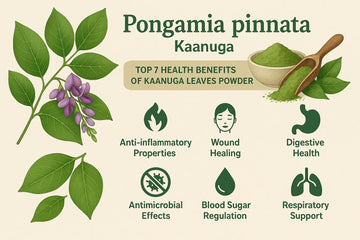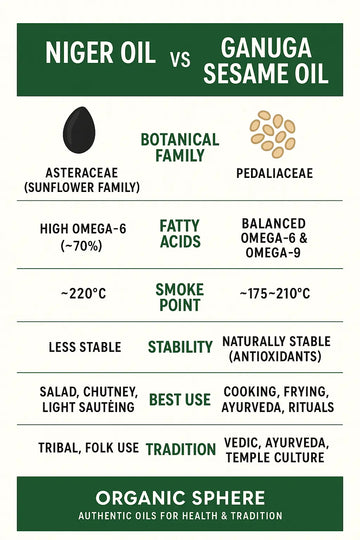What’s a good source for omega‑3 fatty acids in a vegetarian diet especially Docosahexaenoic Acid (DHA) and Eicosapentaenoic Acid (EPA)—two important components for our brains and cell membranes?
Apr 04, 2024
Plant-Based Sources of Omega-3 (ALA, DHA, and EPA)
Algal Oil
Algal oil is derived from algae and is a direct plant-based source of both DHA and EPA, making it an excellent option for vegetarians and vegans. It supports brain health, reduces inflammation, promotes healthy eyes, and benefits heart health. Algal oil supplements are widely available and provide a sustainable and environmentally friendly way to obtain these essential fatty acids without consuming fish.Seaweed and Algae
Seaweed and other forms of algae, such as nori, spirulina, and chlorella, are not only rich in nutrients but also contain EPA and DHA. These can be incorporated into the diet in various ways, such as adding spirulina to smoothies or using nori sheets for sushi rolls.Chia Seeds
Chia seeds are an excellent plant-based source of Alpha-Linolenic Acid (ALA), another type of omega-3 fatty acid. While ALA needs to be converted into EPA and DHA in the body, chia seeds are still beneficial for increasing overall omega-3 intake. They can be used in puddings, smoothies, or as a topping for salads.Flaxseeds and Flaxseed Oil
Flaxseeds and flaxseed oil are rich in ALA and can be converted into EPA and DHA in the body, albeit at a low conversion rate. Ground flaxseeds can be added to smoothies, oatmeal, or baked goods, while flaxseed oil can be used in salad dressings.Hemp Seeds
Hemp seeds contain ALA and are a good source of protein and other nutrients. They can be sprinkled on salads, added to smoothies, or used in baking.Walnuts
Walnuts are another good source of ALA. They can be eaten as a snack or added to various dishes to boost omega-3 intake.Considerations for Vegetarians and Vegans
While plant-based sources primarily provide ALA, the conversion rate of ALA to EPA and DHA in the body is limited. Therefore, vegetarians and vegans may particularly benefit from including algal oil supplements in their diet to ensure adequate intake of DHA and EPA 481011. It's also important to consume a variety of these sources to achieve a balanced intake of omega-3 fatty acids.In summary, vegetarians and vegans can obtain essential omega-3 fatty acids, including DHA and EPA, through plant-based sources such as algal oil, seaweed, chia seeds, flaxseeds, hemp seeds, and walnuts. Algal oil supplements are especially recommended for directly obtaining DHA and EPA without relying on the body's conversion of ALA.
Benefits
Omega-3 fatty acids are essential nutrients that play a crucial role in maintaining overall health, particularly in supporting heart health, brain function, and reducing inflammation. These polyunsaturated fats cannot be produced by the body and must be obtained through diet or supplements. The three main types of omega-3 fatty acids are Alpha-linolenic acid (ALA), Eicosapentaenoic acid (EPA), and Docosahexaenoic acid (DHA), with EPA and DHA primarily found in fish and ALA in plant sources. The benefits of omega-3 fatty acids are supported by a substantial body of scientific research.
Heart Health
Omega-3 fatty acids have been shown to have several benefits for heart health. They can lower blood pressure, reduce triglycerides, slow the development of plaque in the arteries, reduce the likelihood of abnormal heart rhythm, and decrease the chance of heart attack and stroke. Regular consumption of omega-3s, particularly from fish, is recommended to protect against cardiovascular disease[1][2][3][5].
Brain Health and Development
Omega-3s are crucial for brain growth and development in infants. Adequate intake during pregnancy is associated with improved cognitive development, better communication and social skills, fewer behavioral problems, and a decreased risk of developmental delay in children. In adults, omega-3s may help protect against cognitive decline, Alzheimer's disease, dementia, and have a positive effect on gradual memory loss linked to aging[1][2][3].
Mental Health
Omega-3 supplements may help treat and prevent depression and anxiety. EPA, in particular, appears to be the most effective at reducing symptoms of depression. Studies have found that people who consume omega-3s regularly are less likely to be depressed, and omega-3 supplements can improve symptoms in individuals with depression and anxiety[1][2].
Eye Health
DHA is a major structural component of the retina of the eye. Adequate intake of omega-3s, especially DHA, may help prevent macular degeneration, a leading cause of vision impairment and blindness[2].
Inflammation and Autoimmune Diseases
Omega-3 fatty acids can reduce chronic inflammation, which contributes to heart disease, cancer, and various other diseases. They may also help treat and prevent several autoimmune diseases, including type 1 diabetes, rheumatoid arthritis, ulcerative colitis, Crohn’s disease, and psoriasis[2][3].
Metabolic Syndrome
Omega-3s may improve several heart disease risk factors in people with metabolic syndrome, including blood sugar levels and inflammation[2].
Pregnancy and Infant Health
Omega-3s support prenatal growth and development. They are important for the brain development of the fetus and may contribute to a lower risk of allergies in infants[8].
Other Potential Benefits
Research is exploring the effects of omega-3s on other conditions such as asthma in children, symptoms of ADHD, and psychiatric disorders. However, more research is needed in these areas to fully understand their impact[1][2][4].
In summary, omega-3 fatty acids offer a wide range of health benefits, particularly for heart health, brain function, and reducing inflammation. It's recommended to get omega-3s from food sources when possible, but supplements can also be considered, especially for individuals who do not consume fish[1][2][3][5][8].
Citations:
[1] https://www.webmd.com/healthy-aging/omega-3-fatty-acids-fact-sheet
[2] https://www.healthline.com/nutrition/17-health-benefits-of-omega-3
[3] https://www.hsph.harvard.edu/nutritionsource/what-should-you-eat/fats-and-cholesterol/types-of-fat/omega-3-fats/
[4] https://ods.od.nih.gov/factsheets/Omega3FattyAcids-Consumer/
[5] https://www.webmd.com/hypertension-high-blood-pressure/omega-3-fish-oil-supplements-for-high-blood-pressure
[6] https://ods.od.nih.gov/factsheets/Omega3FattyAcids-HealthProfessional/
[7] http://www.medparkhospital.com/en-US/lifestyles/omega-3-health-benefits-of-nutrition
[8] https://www.forbes.com/health/supplements/omega-3-fatty-acids/





